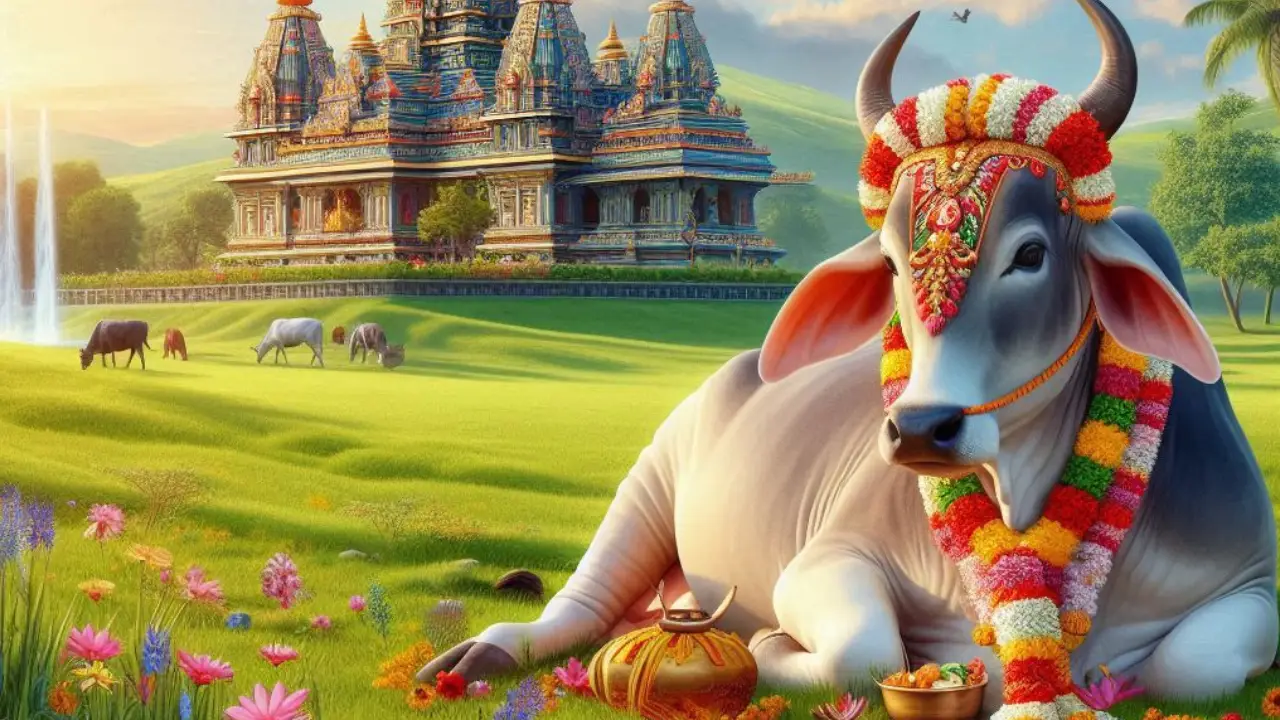Cows hold a special place in Hindu traditions. Their significance goes beyond religious beliefs, touching daily life, culture, and values. Understanding why cows are considered sacred offers insights into India’s spiritual and social practices. Let’s explore more about cow worship in Hinduism.
Ancient Roots of Cow Worship
The cow’s sacred status dates back to the Vedic period. Ancient scriptures like the Rigveda mention cows as symbols of wealth, strength, and abundance. Vedic rituals often included offerings of milk, ghee, and curd — all derived from cows.
Rishis (sages) viewed the cow as a giver of nourishment. This connection to life and sustenance gradually elevated its status. Over time, the cow became a symbol of non-violence, purity, and motherhood.
Cows in Hindu Scriptures
Hindu texts frequently highlight the cow’s importance. The Bhagavad Gita and Mahabharata describe cows as divine beings. Lord Krishna, one of the most revered Hindu deities, grew up as a cowherd. His deep bond with cows reflects their cherished status.
In the Atharvaveda, cows are referred to as ‘Aghnya,’ meaning ‘that which must not be killed.’ This reinforced the idea that harming cows was a serious moral and spiritual offense.
Spiritual Symbolism of the Cow
The cow represents selfless giving. Just as a mother provides milk to her child, the cow nourishes humans with milk and its by-products. This parallel strengthened the belief that the cow is a maternal figure, deserving of respect and protection.
Each part of the cow is linked to spiritual significance:
Horns: Represent Lord Shiva’s trident.
Face: Symbolizes the goddess of wealth, Lakshmi.
Body: Embodies various deities.
Tail: Represents protection from evil forces.
This symbolic association further deepened the cow’s sacred value.
Cultural Practices and Rituals
Cows are integral to many Hindu rituals. During festivals like Govardhan Puja, devotees worship and decorate cows with garlands and colors. In rural India, families often treat cows as part of their household, feeding them before eating themselves.
Temples consider cow donations highly auspicious. People believe that offering a cow, known as Go Daan, brings spiritual merit and blessings.
Ahimsa and the Cow’s Sacredness
The principle of Ahimsa (non-violence) is central to Hindu beliefs. Protecting cows aligns with this value. Saints like Mahatma Gandhi emphasized cow protection as a reflection of compassion and moral duty.
Gandhi famously said, “Cow protection is the gift of Hinduism to the world.” He believed that caring for cows symbolized humanity’s respect for all living beings.
Economic and Social Impact
Historically, cows played a key role in sustaining communities. They provided milk, which nourished families, and dung, which served as an eco-friendly fuel and fertilizer.
In rural India, owning a cow symbolized prosperity. The cow’s ability to provide without demanding much in return reinforced its sacred status.
Why Cow Slaughter Became Taboo
The belief against cow slaughter evolved from both spiritual and practical concerns. Since cows provided essential resources, harming them was seen as wasteful and cruel. Over time, this belief became a strong social value.
During India’s medieval period, various rulers enforced cow protection laws. This strengthened the connection between cow worship and cultural identity.
Cows in Modern Hindu Practices
Even today, many Hindu families keep a cow as a symbol of good fortune. Cow shelters, known as gaushalas, exist across India to care for abandoned or sick cows.
During religious ceremonies, offerings made with cow products like ghee hold special significance. Many Hindus believe these products purify the mind and environment.
Stories Emphasizing the Cow’s Sacredness
Hindu mythology offers several stories that highlight the cow’s spiritual value. One famous tale speaks of Kamadhenu, the celestial cow believed to grant wishes. Kamadhenu is said to have emerged during the churning of the ocean (Samudra Manthan) and became a symbol of divine abundance.
Another story describes how Lord Krishna’s playful moments with his beloved cows reflected his connection to love, compassion, and care.
Scientific and Environmental Benefits
Modern science highlights the practical benefits of cow-based products. Cow dung serves as a natural disinfectant and fertilizer. Cow urine is used in Ayurveda for its medicinal properties. These practices combine spirituality with sustainable living.
Respecting Sacred Beliefs Today
While cultural differences exist, understanding the spiritual roots of cow reverence promotes mutual respect. For many Hindus, the cow is more than just an animal — it’s a symbol of gratitude, kindness, and harmony.
Conclusion
The cow’s sacred status in Hindu traditions is deeply rooted in spirituality, culture, and social values. Its connection to nourishment, non-violence, and sustainability continues to hold meaning in modern life. Embracing this understanding fosters respect for Hindu beliefs and the values they uphold.
Have you experienced cow worship traditions or rituals in your community? Share your thoughts and stories in the comments below.

